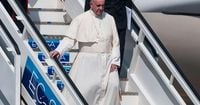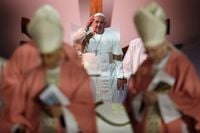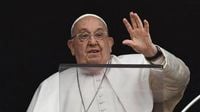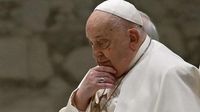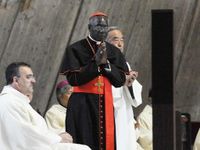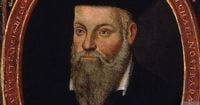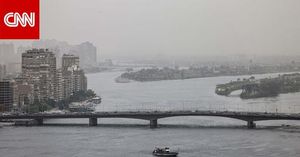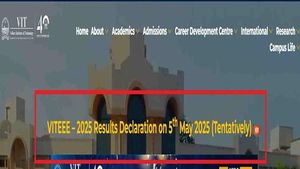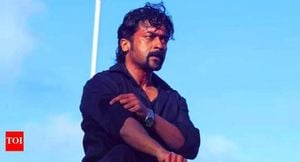The death of Pope Francis at the age of 88 on April 21, 2025, has reignited discussions surrounding a prophecy made by the French astrologer Nostradamus. In his book Les Prophéties, published in 1555, Nostradamus predicted the demise of a 'very old' pope in 2025, suggesting that this event would signal the beginning of a weakening of the Catholic Church.
Nostradamus wrote, 'With the death of a very old Pontiff / A Roman of good age will be elected / They will say of him that he weakens his see / But for a long time he will reign with mordant activity.' This prediction has captured the attention of many, especially in light of Francis’ passing, making him the fourth oldest pope to die in office, following Leo XIII, Celestine III, and Gregory XII.
Francis passed away after battling bilateral pneumonia for 38 days, a health struggle that had begun in March. His papacy, which started in 2013, was marked by significant reforms and a more progressive stance within the Church. His death has led to speculations about the future direction of the Catholic Church and the potential impact of Nostradamus's prophecy.
In addition to the prediction regarding the pope’s death, Nostradamus also forecast other events for 2025, including the return of a 17th-century plague, the arrival of a devastating 'ball of fire from the cosmos', and the end of a long-standing war due to the exhaustion of armies. These predictions add a layer of intrigue as the world contemplates the implications of Francis' death.
The process of electing a new pope, known as the conclave, will begin between 15 and 20 days after Francis' death. Approximately 120 cardinals under the age of 80 are eligible to vote, although there are more than 250 cardinals globally. The election will take place in the Sistine Chapel, where the cardinals will be locked inside the Vatican, devoid of any contact with the outside world.
During the conclave, the cardinals engage in discussions and negotiations, although formal campaigning is prohibited. They will cast their votes in a process that requires a two-thirds majority, which can take several days. The results are communicated through smoke signals from the chapel chimney: black smoke indicates no decision has been made, while white smoke signifies the election of a new pope.
Once a new pope is elected, he will be asked if he accepts the mission and what name he will adopt. The traditional announcement is made with the phrase, 'Annuntio vobis gaudium magnum... habemus papam!', meaning 'I announce to you a great joy... we have a pope!'. Following this, the new leader of the Catholic Church will deliver his first blessing to the city and the world during the Urbi et Orbi ceremony.
As the conclave approaches, speculation is rife regarding who will succeed Francis. Some believe the next pope could be a cardinal from Africa or Asia, with names like Peter Turkson from Ghana and Robert Sarah from Guinea emerging as potential candidates. This potential shift in leadership could be viewed by some as a fulfillment of Nostradamus’s prophecies.
While the Catholic Church does not officially recognize such prophecies, they continue to fascinate both believers and scholars, especially during transitions of papal power. The next pope's selection will be closely monitored by those who interpret Nostradamus's predictions as harbingers of significant future events.
Interestingly, the prophecy mentions the successor as a 'young Roman of good age and dark skin,' which has led to interpretations linking it to the so-called 'Black Pope', a term that, while not found in Nostradamus's original texts, has gained traction in modern discussions. This interpretation reflects broader themes of change and diversity within the Church.
As the world reflects on the legacy of Pope Francis, who was known for his progressive views and efforts to modernize the Church, the upcoming conclave will not only determine the next leader but may also shape the future trajectory of Catholicism itself. The interplay between ancient prophecies and contemporary events continues to stir curiosity and debate among the faithful and the general public alike.
In the wake of Francis' death, many are left pondering the implications of Nostradamus's predictions and what they may mean for the Catholic Church and its followers. Will the election of a new pope bring about the changes foreseen by Nostradamus, or will the Church maintain its course amidst the challenges it faces? Only time will tell as the world watches the unfolding events in the Vatican.
